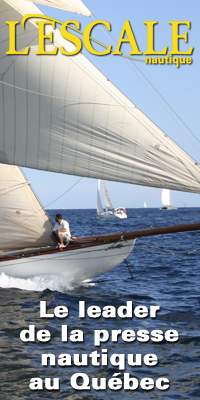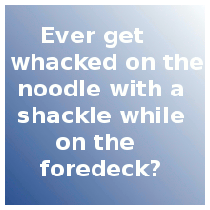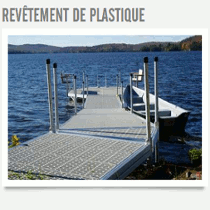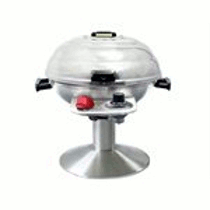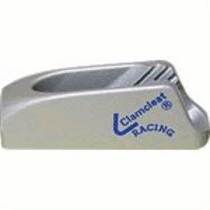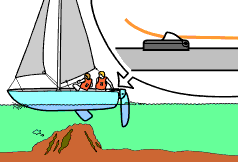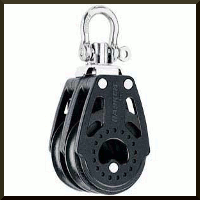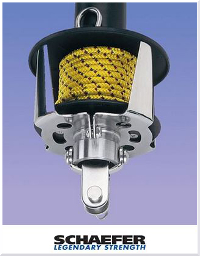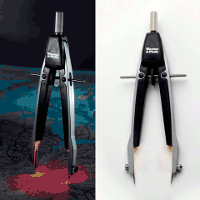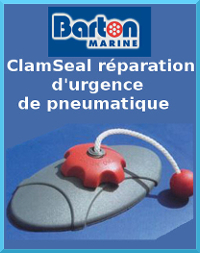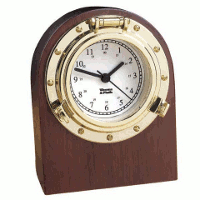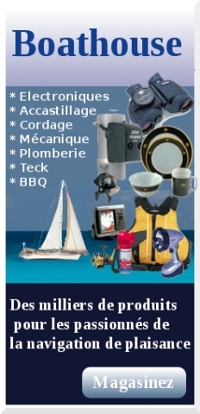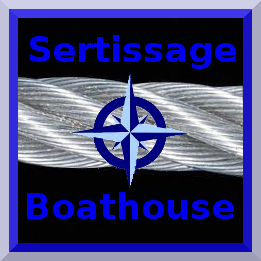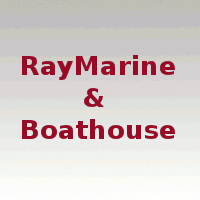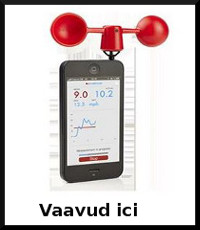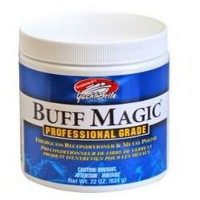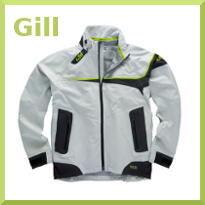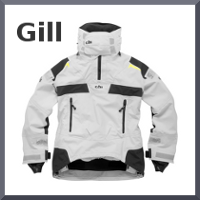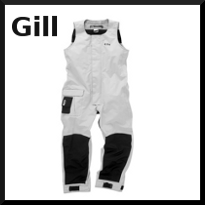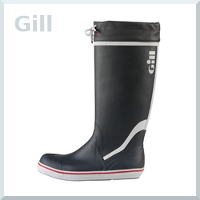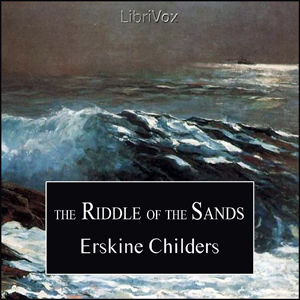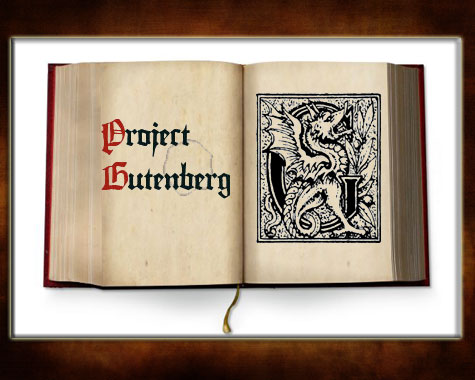A note from Boathouse:
It’s going to be a long winter and winter for most is a season to research and plan upcoming trips, day dream about boating and also read about boating. Presented here a chapter of ‘The Riddle of the sands’ an excellent pre WWI sailing adventure. Every week Boathouse will present a chapter or two of this public domain work and hopefully this will ease the passage of winter for our readers. If you are inpatient and can’t wait for each weeks installment you can read the entire book at gutenburg.org If you would rather listen to the book here is a link to an audio version: Chapter 5 & Chapter 6
If you would like to be notified when posts are added to this blog please send an email to blogadmin@boathouse.ca with the words ‘Subscribe to blog’ as the subject.
Have fun! Post a comment, let us know what you think.
Boathouse
—————————————————————-
V.
Wanted, a North Wind
NOTHING disturbed my rest that night, so adaptable is youth and so masterful is nature. At times I was remotely aware of a threshing of rain and a humming of wind, with a nervous kicking of the little hull, and at one moment I dreamt I saw an apparition by candle-light of Davies, clad in pyjamas and huge top-boots, grasping a misty lantern of gigantic proportions. But the apparition mounted the ladder and disappeared, and I passed to other dreams.
A blast in my ear, like the voice of fifty trombones, galvanized me into full consciousness. The musician, smiling and tousled, was at my bedside, raising a foghorn to his lips with deadly intention. ‘It’s a way we have in the Dulcibella,’ he said, as I started up on one elbow. ‘I didn’t startle you much, did I?’ he added.
‘Well, I like the mattinata better than the cold douche,’ I answered, thinking of yesterday.
‘Fine day and magnificent breeze!’ he answered. My sensations this morning were vastly livelier than those of yesterday at the same hour. My limbs were supple again and my head clear. Not even the searching wind could mar the ecstasy of that plunge down to smooth, seductive sand, where I buried greedy fingers and looked through a medium blue, with that translucent blue, fairy-faint and angel-pure, that you see in perfection only in the heart of ice. Up again to sun, wind, and the forest whispers from the shore; down just once more to see the uncouth anchor stabbing the sand’s soft bosom with one rusty fang, deaf and inert to the Dulcibella‘s puny efforts to drag him from his prey. Back, holding by the cable as a rusty clue from heaven to earth, up to that bourgeois little maiden’s bows; back to breakfast, with an appetite not to be blunted by condensed milk and somewhat passé bread. An hour later we had dressed the Dulcibella for the road, and were foaming into the grey void of yesterday, now a noble expanse of wind-whipped blue, half surrounded by distant hills, their every outline vivid in the rain-washed air.
I cannot pretend that I really enjoyed this first sail into the open, though I was keenly anxious to do so. I felt the thrill of those forward leaps, heard that persuasive song the foam sings under the lee-bow, saw the flashing harmonies of sea and sky; but sensuous perception was deadened by nervousness. The yacht looked smaller than ever outside the quiet fiord. The song of the foam seemed very near, the wave crests aft very high. The novice in sailing clings desperately to the thoughts of sailors—effective, prudent persons, with a typical jargon and a typical dress, versed in local currents and winds. I could not help missing this professional element. Davies, as he sat grasping his beloved tiller, looked strikingly efficient in his way, and supremely at home in his surroundings; but he looked the amateur through and through, as with one hand, and (it seemed) one eye, he wrestled with a spray-splashed chart half unrolled on the deck beside him. All his casual ways returned to me—his casual talk and that last adventurous voyage to the Baltic, and the suspicions his reticence had aroused.
‘Do you see a monument anywhere?’ he said, all at once; and, before I could answer; ‘We must take another reef.’ He let go of the tiller and relit his pipe, while the yacht rounded sharply to, and in a twinkling was tossing head to sea with loud claps of her canvas and passionate jerks of her boom, as the wind leapt on its quarry, now turning to bay, with redoubled force. The sting of spray in my eyes and the Babel of noise dazed me; but Davies, with a pull on the fore-sheet, soothed the tormented little ship, and left her coolly sparring with the waves while he shortened sail and puffed his pipe. An hour later the narrow vista of Als Sound was visible, with quiet old Sonderburg sunning itself on the island shore, and the Dybbol heights towering above—the Dybbol of bloody memory; scene of the last desperate stand of the Danes in ’64, ere the Prussians wrested the two fair provinces from them.
‘It’s early to anchor, and I hate towns,’ said Davies, as one section of a lumbering pontoon bridge opened to give us passage. But I was firm on the need for a walk, and got my way on condition that I bought stores as well, and returned in time to admit of further advance to a ‘quiet anchorage’. Never did I step on the solid earth with stranger feelings, partly due to relief from confinement, partly to that sense of independence in travelling, which, for those who go down to the sea in small ships, can make the foulest coal-port in Northumbria seem attractive. And here I had fascinating Sonderburg, with its broad-eaved houses of carved woodwork, each fresh with cleansing, yet reverend with age; its fair-haired Viking-like men, and rosy, plain-faced women, with their bullet foreheads and large mouths; Sonderburg still Danish to the core under its Teuton veneer. Crossing the bridge I climbed the Dybbol—dotted with memorials of that heroic defence—and thence could see the wee form and gossamer rigging of the Dulcibella on the silver ribbon of the Sound, and was reminded by the sight that there were stores to be bought. So I hurried down again to the old quarter and bargained over eggs and bread with a dear old lady, pink as a débutante, made a patriotic pretence of not understanding German, and called in her strapping son, whose few words of English, being chiefly nautical slang picked up on a British trawler, were peculiarly useless for the purpose. Davies had tea ready when I came aboard again, and, drinking it on deck, we proceeded up the sheltered Sound, which, in spite of its imposing name, was no bigger than an inland river, only the hosts of rainbow jelly-fish reminding us that we were threading a highway of ocean. There is no rise and fall of tide in these regions to disfigure the shore with mud. Here was a shelving gravel bank; there a bed of whispering rushes; there again young birch trees growing to the very brink, each wearing a stocking of bright moss and setting its foot firmly in among golden leaves and scarlet fungus.
Davies was preoccupied, but he lighted up when I talked of the Danish war. ‘Germany’s a thundering great nation,’ he said; ‘I wonder if we shall ever fight her.’ A little incident that happened after we anchored deepened the impression left by this conversation. We crept at dusk into a shaded back-water, where our keel almost touched the gravel bed. Opposite us on the Alsen shore there showed, clean-cut against the sky, the spire of a little monument rising from a leafy hollow.
‘I wonder what that is,’ I said. It was scarcely a minute’s row in the dinghy, and when the anchor was down we sculled over to it. A bank of loam led to gorse and bramble. Pushing aside some branches we came to a slender Gothic memorial in grey stone, inscribed with bas-reliefs of battle scenes, showing Prussians forcing a landing in boats and Danes resisting with savage tenacity. In the failing light we spelt out an inscription: ‘Den bei dem Meeres-Uebergange und der Eroberung von Alsen am 29. Juni 1864 heldenmüthig gefallenen zum ehrenden Gedächtniss.’ ‘To the honoured memory of those who died heroically at the invasion and storming of Alsen.’ I knew the German passion for commemoration; I had seen similar memorials on Alsatian battlefields, and several on the Dybbol only that afternoon; but there was something in the scene, the hour, and the circumstances, which made this one seem singularly touching. As for Davies, I scarcely recognized him; his eyes flashed and filled with tears as he glanced from the inscription to the path we had followed and the water beyond. ‘It was a landing in boats, I suppose,’ he said, half to himself. ‘I wonder they managed it. What does heldenmüthig mean?’—’Heroically.’—’Heldenmüthig gefallenen,’ he repeated, under his breath, lingering on each syllable. He was like a schoolboy reading of Waterloo.
Our conversation at dinner turned naturally on war, and in naval warfare I found I had come upon Davies’s literary hobby. I had not hitherto paid attention to the medley on our bookshelf, but I now saw that, besides a Nautical Almanack and some dilapidated Sailing Directions, there were several books on the cruises of small yachts, and also some big volumes crushed in anyhow or lying on the top. Squinting painfully at them I saw Mahan’s Life of Nelson, Brassey’s Naval Annual, and others.
‘It’s a tremendously interesting subject,’ said Davies, pulling down (in two pieces) a volume of Mahan’s Influence of Sea Power.
Dinner flagged (and froze) while he illustrated a point by reference to the much-thumbed pages. He was very keen, and not very articulate. I knew just enough to be an intelligent listener, and, though hungry, was delighted to hear him talk.
‘I’m not boring you, am I?’ he said, suddenly.
‘I should think not,’ I protested. ‘But you might just have a look at the chops.’
They had indeed been crying aloud for notice for some minutes, and drew candid attention to their neglect when they appeared. The diversion they caused put Davies out of vein. I tried to revive the subject, but he was reserved and diffident.
The untidy bookshelf reminded me of the logbook, and when Davies had retired with the crockery to the forecastle, I pulled the ledger down and turned over the leaves. It was a mass of short entries, with cryptic abbreviations, winds, tides, weather, and courses appearing to predominate. The voyage from Dover to Ostend was dismissed in two lines: ‘Under way 7 p.m., wind W.S.W. moderate; West Hinder 5 a.m., outside all banks Ostend 11 a.m.’ The Scheldt had a couple of pages very technical and staccato in style. Inland Holland was given a contemptuous summary, with some half-hearted allusions to windmills, and so on, and a caustic word or two about boys, paint, and canal smells.
At Amsterdam technicalities began again, and a brisker tone pervaded the entries, which became progressively fuller as the writer cruised on the Frisian coast. He was clearly in better spirits, for here and there were quaint and laboured efforts to describe nature out of material which, as far as I could judge, was repellent enough to discourage the most brilliant and observant of writers; with an occasional note of a visit on shore, generally reached by a walk of half a mile over sand, and of talks with shop people and fishermen. But such lighter relief was rare. The bulk dealt with channels and shoals with weird and depressing names, with the centre-plate, the sails, and the wind, buoys and ‘booms’, tides and ‘berths’ for the night. ‘Kedging off’ appeared to be a frequent diversion; ‘running aground’ was of almost daily occurrence.
It was not easy reading, and I turned the leaves rapidly. I was curious, too, to see the latter part. I came to a point where the rain of little sentences, pattering out like small shot, ceased abruptly. It was at the end of 9th September. That day, with its ‘kedging’ and ‘boom-dodging’, was filled in with the usual detail. The log then leapt over three days, and went on: ‘13th. Sept.—Wind W.N.W. fresh. Decided to go to Baltic. Sailed 4 a.m. Quick passage E. S. to mouth of Weser. Anchored for night under Hohenhörn Sand. 14th Sept.—Nil. 15th Sept.—Under way at 4 a.m. Wind East moderate. Course W. by S.: four miles; N.E. by N. fifteen miles Norderpiep 9.30. Eider River 11.30.’ This recital of naked facts was quite characteristic when ‘passages’ were concerned, and any curiosity I had felt about his reticence on the previous night would have been rather allayed than stimulated had I not noticed that a page had been torn out of the book just at this point. The frayed edge left had been pruned and picked into very small limits; but dissimulation was not Davies’s strong point, and a child could have seen that a leaf was missing, and that the entries, starting from the evening of 9th September (where a page ended), had been written together at one sitting. I was on the point of calling to Davies, and chaffing him with having committed a grave offence against maritime law in having ‘cooked’ his log; but I checked myself, I scarcely know why, probably because I guessed the joke would touch a sensitive place and fail. Delicacy shrank from seeing him compelled either to amplify a deception or blunder out a confession—he was too easy a prey; and, after all, the matter was of small moment. I returned the book to the shelf, the only definite result of its perusal being to recall my promise to keep a diary myself, and I then and there dedicated a notebook to the purpose.
We were just lighting our cigars when we heard voices and the splash of oars, followed by a bump against the hull which made Davies wince, as violations of his paint always did. ‘Guten Abend; wo fahren Sie hin?’ greeted us as we climbed on deck. It turned out to be some jovial fishermen returning to their smack from a visit to Sonderburg. A short dialogue proved to them that we were mad Englishmen in bitter need of charity.
‘Come to Satrup,’ they said; ‘all the smacks are there, round the point. There is good punch in the inn.’
Nothing loth, we followed in the dinghy, skirted a bend of the Sound, and opened up the lights of a village, with some smacks at anchor in front of it. We were escorted to the inn, and introduced to a formidable beverage, called coffee-punch, and a smoke-wreathed circle of smacksmen, who talked German out of courtesy, but were Danish in all else. Davies was at once at home with them, to a degree, indeed, that I envied. His German was of the crudest kind, bizarre in vocabulary and comical in accent; but the freemasonry of the sea, or some charm of his own, gave intuition to both him and his hearers. I cut a poor figure in this nautical gathering, though Davies, who persistently referred to me as ‘meiner Freund’, tried hard to represent me as a kindred spirit and to include me in the general talk. I was detected at once as an uninteresting hybrid. Davies, who sometimes appealed to me for a word, was deep in talk over anchorages and ducks, especially, as I well remember now, about the chance of sport in a certain Schlei Fiord. I fell into utter neglect, till rescued by a taciturn person in spectacles and a very high cap, who appeared to be the only landsman present. After silently puffing smoke in my direction for some time, he asked me if I was married, and if not, when I proposed to be. After this inquisition he abandoned me.
It was eleven before we left this hospitable inn, escorted by the whole party to the dinghy. Our friends of the smack insisted on our sharing their boat out of pure good-fellowship—for there was not nearly room for us—and would not let us go till a bucket of fresh-caught fish had been emptied into her bottom. After much shaking of scaly hands, we sculled back to the Dulcibella, where she slept in a bed of tremulous stars.
Davies sniffed the wind and scanned the tree-tops, where light gusts were toying with the leaves.
‘Sou’-west still,’ he said, ‘and more rain coming. But it’s bound to shift into the north.’
‘Will that be a good wind for us?’
‘It depends where we go,’ he said, slowly. ‘I was asking those fellows about duck-shooting. They seemed to think the best place would be Schlei Fiord. That’s about fifteen miles south of Sonderburg, on the way to Kiel. They said there was a pilot chap living at the mouth who would tell us all about it. They weren’t very encouraging though. We should want a north wind for that.’
‘I don’t care where we go,’ I said, to my own surprise.
‘Don’t you really?’ he rejoined, with sudden warmth. Then, with a slight change of voice. ‘You mean it’s all very jolly about here?’
Of course I meant that. Before we went below we both looked for a moment at the little grey memorial; its slender fretted arch outlined in tender lights and darks above the hollow on the Alsen shore. The night was that of 27th September, the third I had spent on the Dulcibella.
VI
Schlei Fiord
I MAKE no apology for having described these early days in some detail. It is no wonder that their trivialities are as vividly before me as the colours of earth and sea in this enchanting corner of the world. For every trifle, sordid or picturesque, was relevant; every scrap of talk a link; every passing mood critical for good or ill. So slight indeed were the determining causes that changed my autumn holiday into an undertaking the most momentous I have ever approached.
Two days more preceded the change. On the first, the southwesterly wind still holding, we sallied forth into Augustenburg Fiord, ‘to practise smartness in a heavy thresh,’ as Davies put it. It was the day of dedication for those disgusting oilskins, immured in whose stiff and odorous angles, I felt distressfully cumbersome; a day of proof indeed for me, for heavy squalls swept incessantly over the loch, and Davies, at my own request, gave me no rest. Backwards and forwards we tacked, blustering into coves and out again, reefing and unreefing, now stung with rain, now warmed with sun, but never with time to breathe or think.
I wrestled with intractable ropes, slaves if they could be subdued, tyrants if they got the upper hand; creeping, craning, straining, I made the painful round of the deck, while Davies, hatless and tranquil, directed my blundering movements.
‘Now take the helm and try steering in a hard breeze to windward. It’s the finest sport on earth.’
So I grappled with the niceties of that delicate craft; smarting eyes, chafed hands, and dazed brain all pressed into the service, whilst Davies, taming the ropes the while, shouted into my ear the subtle mysteries of the art; that fidgeting ripple in the luff of the mainsail, and the distant rattle from the hungry jib—signs that they are starved of wind and must be given more; the heavy list and wallow of the hull, the feel of the wind on your cheek instead of your nose, the broader angle of the burgee at the masthead—signs that they have too much, and that she is sagging recreantly to leeward instead of fighting to windward. He taught me the tactics for meeting squalls, and the way to press your advantage when they are defeated—the iron hand in the velvet glove that the wilful tiller needs if you are to gain your ends with it; the exact set of the sheets necessary to get the easiest and swiftest play of the hull—all these things and many more I struggled to apprehend, careless for the moment as to whether they were worth knowing, but doggedly set on knowing them. Needless to say, I had no eyes for beauty. The wooded inlets we dived into gave a brief respite from wind and spindrift, but called into use the lead and the centre-board tackle—two new and cumbrous complexities. Davies’s passion for intricate navigation had to be sated even in these secure and tideless waters.
‘Let’s get in as near as we can—you stand by the lead,’ was his formula; so I made false casts, tripped up in the slack, sent rivers of water up my sleeves, and committed all the other gaucheries that beginners in the art commit, while the sand showed whiter beneath the keel, till Davies regretfully drew off and shouted: ‘Ready about, centre-plate down,’ and I dashed down to the trappings of that diabolical contrivance, the only part of the Dulcibella‘s equipment that I hated fiercely to the last. It had an odious habit when lowered of spouting jets of water through its chain-lead on to the cabin floor. One of my duties was to gag it with cotton-waste, but even then its choking gurgle was a most uncomfortable sound in your dining-room. In a minute the creek would be behind us and we would be thumping our stem into the short hollow waves of the fiord, and lurching through spray and rain for some point on the opposite shore. Of our destination and objects, if we had any, I knew nothing. At the northern end of the fiord, just before we turned, Davies had turned dreamy in the most exasperating way, for I was steering at the time and in mortal need of sympathetic guidance, if I was to avoid a sudden jibe. As though continuing aloud some internal debate, he held a onesided argument to the effect that it was no use going farther north. Ducks, weather, and charts figured in it, but I did not follow the pros and cons. I only know that we suddenly turned and began to ‘battle’ south again. At sunset we were back once more in the same quiet pool among the trees and fields of Als Sound, a wondrous peace succeeding the turmoil. Bruised and sodden, I was extricating myself from my oily prison, and later was tasting (though not nearly yet in its perfection) the unique exultation that follows such a day, when, glowing all over, deliciously tired and pleasantly sore, you eat what seems ambrosia, be it only tinned beef; and drink nectar, be it only distilled from terrestrial hops or coffee berries, and inhale as culminating luxury balmy fumes which even the happy Homeric gods knew naught of.
On the following morning, the 30th, a joyous shout of ‘Nor’-west wind’ sent me shivering on deck, in the small hours, to handle rain-stiff canvas and cutting chain. It was a cloudy, unsettled day, but still enough after yesterday’s boisterous ordeal. We retraced our way past Sonderburg, and thence sailed for a faint line of pale green on the far south-western horizon. It was during this passage that an incident occurred, which, slight as it was, opened my eyes to much.
A flight of wild duck crossed our bows at some little distance, a wedge-shaped phalanx of craning necks and flapping wings. I happened to be steering while Davies verified our course below; but I called him up at once, and a discussion began about our chances of sport. Davies was gloomy over them.
‘Those fellows at Satrup were rather doubtful,’ he said. ‘There are plenty of ducks, but I made out that it’s not easy for strangers to get shooting. The whole country’s so very civilized; it’s not wild enough, is it?’
He looked at me. I had no very clear opinion. It was anything but wild in one sense, but there seemed to be wild enough spots for ducks. The shore we were passing appeared to be bordered by lonely marshes, though a spacious champaign showed behind. If it were not for the beautiful places we had seen, and my growing taste for our way of seeing them, his disappointing vagueness would have nettled me more than it did. For, after all, he had brought me out loaded with sporting equipment under a promise of shooting.
‘Bad weather is what we want for ducks,’ he said; ‘but I’m afraid we’re in the wrong place for them. Now, if it was the North Sea, among those Frisian islands—’ His tone was timid and interrogative, and I felt at once that he was sounding me as to some unpalatable plan whose nature began to dawn on me.
He stammered on through a sentence or two about ‘wildness’ and ‘nobody to interfere with you,’ and then I broke in: ‘You surely don’t want to leave the Baltic?’
‘Why not?’ said he, staring into the compass.
‘Hang it, man!’ I returned, tartly, ‘here we are in October, the summer over, and the weather gone to pieces. We’re alone in a cockle-shell boat, at a time when every other yacht of our size is laying up for the winter. Luckily, we seem to have struck an ideal cruising-ground, with a wide choice of safe fiords and a good prospect of ducks, if we choose to take a little trouble about them. You can’t mean to waste time and run risks’ (I thought of the torn leaf in the log-book) ‘in a long voyage to those forbidding haunts of yours in the North Sea.’
‘It’s not very long,’ said Davies, doggedly. ‘Part of it’s canal, and the rest is quite safe if you’re careful. There’s plenty of sheltered water, and it’s not really necessary—’
‘What’s it all for?’ I interrupted, impatiently. ‘We haven’t tried for shooting here yet. You’ve no notion, have you, of getting the boat back to England this autumn?’
‘England?’ he muttered. ‘Oh, I don’t much care.’ Again his vagueness jarred on me; there seemed to be some bar between us, invisible and insurmountable. And, after all, what was I doing here? Roughing it in a shabby little yacht, utterly out of my element, with a man who, a week ago, was nothing to me, and who now was a tiresome enigma. Like swift poison the old morbid mood in which I left London spread through me. All I had learnt and seen slipped away; what I had suffered remained. I was on the point of saying something which might have put a precipitate end to our cruise, but he anticipated me.
‘I’m awfully sorry,’ he broke out, ‘for being such a selfish brute. I don’t know what I was thinking about. You’re a brick to join me in this sort of life, and I’m afraid I’m an infernally bad host. Of course this is just the place to cruise. I forgot about the scenery, and all that. Let’s ask about the ducks here. As you say, we’re sure to get sport if we worry and push a bit. We must be nearly there now—yes, there’s the entrance. Take the helm, will you?’
He sprang up the mast like a monkey, and gazed over the land from the cross-trees. I looked up at my enigma and thanked Providence I had not spoken; for no one could have resisted his frank outburst of good nature. Yet it occurred to me that, considering the conditions of our life, our intimacy was strangely slow in growth. I had no clue yet as to where his idiosyncrasies began and his self ended, and he, I surmised, was in the same stage towards me. Otherwise I should have pressed him further now, for I felt convinced that there was some mystery in his behaviour which I had not yet accounted for. However, light was soon to break.
I could see no sign of the entrance he had spoken of, and no wonder, for it is only eighty yards wide, though it leads to a fiord thirty miles long. All at once we were jolting in a tumble of sea, and the channel grudgingly disclosed itself, stealing between marshes and meadows and then broadening to a mere, as at Ekken. We anchored close to the mouth, and not far from a group of vessels of a type that afterwards grew very familiar to me. They were sailing-barges, something like those that ply in the Thames, bluff-bowed, high-sterned craft of about fifty tons, ketch-rigged, and fitted with lee-boards, very light spars, and a long tip-tilted bowsprit. (For the future I shall call them ‘galliots’.) Otherwise the only sign of life was a solitary white house—the pilot’s house, the chart told us—close to the northern point of entrance. After tea we called on the pilot. Patriarchally installed before a roaring stove, in the company of a buxom bustling daughter-in-law and some rosy grandchildren, we found a rotund and rubicund person, who greeted us with a hoarse roar of welcome in German, which instantly changed, when he saw us, to the funniest broken English, spoken with intense relish and pride. We explained ourselves and our mission as well as we could through the hospitable interruptions caused by beer and the strains of a huge musical box, which had been set going in honour of our arrival. Needless to say, I was read like a book at once, and fell into the part of listener.
‘Yes, yes,’ he said, ‘all right. There is plenty ducks, but first we will drink a glass beer; then we will shift your ship, captain—she lies not good there.’ (Davies started up in a panic, but was waved back to his beer.) ‘Then we will drink together another glass beer; then we will talk of ducks—no, then we will kill ducks—that is better. Then we will have plenty glasses beer.’
This was an unexpected climax, and promised well for our prospects. And the programme was fully carried out. After the beer our host was packed briskly by his daughter into an armour of woollen gaiters, coats, and mufflers, topped with a worsted helmet, which left nothing of his face visible but a pair of twinkling eyes. Thus equipped, he led the way out of doors, and roared for Hans and his gun, till a great gawky youth, with high cheek-bones and a downy beard, came out from the yard and sheepishly shook our hands.
Together we repaired to the quay, where the pilot stood, looking like a genial ball of worsted, and bawled hoarse directions while we shifted the Dulcibella to a berth on the farther shore close to the other vessels. We returned with our guns, and the interval for refreshments followed. It was just dusk when we sallied out again, crossed a stretch of bog-land, and took up strategic posts round a stagnant pond. Hans had been sent to drive, and the result was a fine mallard and three ducks. It was true that all fell to the pilot’s gun, perhaps owing to Hans’ filial instinct and his parent’s canny egotism in choosing his own lair, or perhaps it was chance; but the shooting-party was none the less a triumphal success. It was celebrated with beer and music as before, while the pilot, an infant on each podgy knee, discoursed exuberantly on the glories of his country and the Elysian content of his life. ‘There is plenty beer, plenty meat, plenty money, plenty ducks,’ summed up his survey.
It may have been fancy, but Davies, though he had fits and starts of vivacity, seemed very inattentive, considering that we were sitting at the feet of so expansive an oracle. It was I who elicited most of the practical information—details of time, weather, and likely places for shooting, with some shrewd hints as to the kind of people to conciliate. Whatever he thought of me, I warmed with sympathy towards the pilot, for he assumed that we had done with cruising for the year, and thought us mad enough as it was to have been afloat so long, and madder still to intend living on ‘so little a ship’ when we could live on land with beer and music handy. I was tempted to raise the North Sea question, just to watch Davies under the thunder of rebukes which would follow. But I refrained from a wish to be tender with him, now that all was going so well. The Frisian Islands were an extravagant absurdity now. I did not even refer to them as we pulled back to the Dulcibella, after swearing eternal friendship with the good pilot and his family.
Davies and I turned in good friends that night—or rather I should say that I turned in, for I left him sucking an empty pipe and aimlessly fingering a volume of Mahan; and once when I woke in the night I felt somehow that his bunk was empty and that he was there in the dark cabin, dreaming.
———————-
Traditional weather glass




